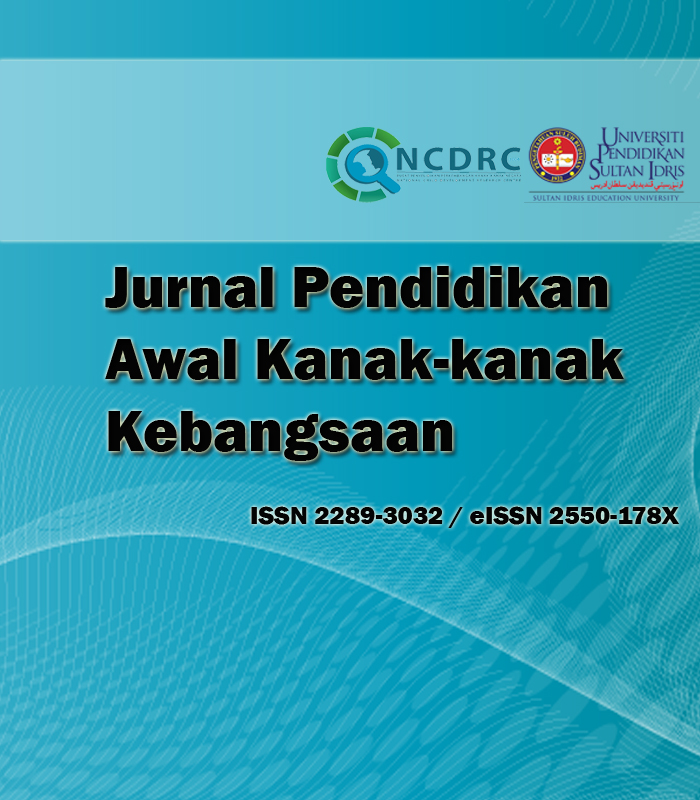Understanding Parent-Child Relationship Dynamics in Malaysian Indian Families
DOI:
https://doi.org/10.37134/jpak.vol13.1.9.2024Keywords:
Malaysian Indian families, Cultural influences, Migration experiences, Socio-economic factors, Communication patterns, Gender equalityAbstract
This study delves into the complex dynamics of parent-child relationships in Malaysian Indian families, examining the interplay of cultural influences, contemporary challenges, gender dynamics, and migration experiences. The research aims to comprehend how cultural values, traditions, and religious teachings shape these relationships and explores the impact of modern challenges like economic pressures, educational expectations, and technological advancements. Additionally, the study investigates gender dynamics, analyzes migration experiences, and identifies implications for familial well-being and cultural adaptation. Adopting a quantitative method approach, the data, collected through surveys, assesses communication patterns, parental expectations, and socio-economic factors affecting parent-child relationships. The findings highlight the intricate nature of these relationships, influenced by cultural traditions, contemporary challenges, gender dynamics, and migration experiences. Cultural values such as respect for elders and filial piety guide parental expectations and children's behavior. However, challenges like economic pressures and gender biases pose obstacles, impacting interactions and children's well-being. Migration experiences influence relationships as families navigate dual cultural identities and negotiate belongingness in both Malaysian and Indian contexts. The study underscores the need to support Malaysian Indian families in navigating diverse challenges while preserving their cultural heritage and fostering inclusive parent-child relationships.
Downloads
References
Braithwaite, D. O., & Baxter, L. A. (2019). Engaging theories in family communication: Multiple perspectives. Routledge.
Basha, S. A., & Mahmood, S. N. (2020). Digital parenting in Malaysian families: Challenges and strategies. Pertanika Journal of Social Sciences & Humanities, 28(4), 3077-3092.
Conger, R. D., & Donnellan, M. B. (2007). An interactionist perspective on the socioeconomic context of human development. Annual Review of Psychology, 58, 175-199.
Govindasamy, S., & Kaur, J. (2020). Gender inequality and the future of Malaysian Indian girls: An intersectional perspective. In S. Govindasamy & J. Kaur (Eds.), Gender, Religion, and Education in a Global Context (pp. 45-64). Routledge.
Gopalakrishnan, S. (2019). Parental involvement in children's education: A case study of Indian families in Malaysia. International Journal of Educational Research, 94, 119-130.
Kumari, N., & Ambrose, P. (2018). Navigating Transnationalism: The Experiences of Malaysian Indian Families. Journal of Intercultural Communication Research, 47(5), 441-460.
Muthiah, N. (2016). Understanding Malaysian Indian families: A sociological analysis. Journal of South Asian Development, 11(2), 157-174.
Narayana, D., & Hossain, M. S. (2019). Parenting in Malaysian Indian families: Cultural beliefs, practices, and challenges. Pertanika Journal of Social Sciences & Humanities, 27(4), 2269-2283.
Raghavan, R., & Subramaniam, G. (2018). Socio-economic well-being of Malaysian Indian families: Challenges and strategies. Pertanika Journal of Social Sciences & Humanities, 26(3), 1403-1416.
Sathasivam, K., & Mohamad, N. (2020). The Impact of Migration on Malaysian Indian Families: Challenges and Coping Strategies. Journal of International Migration and Integration, 21(4), 1075-1093.
Sivakumar, S., & Jayapalan, S. (2021). Culturally Sensitive Interventions for Malaysian Indian Families: A Review of Strategies. Journal of Cross-Cultural Psychology, 52(1), 3-22.
Subramanian, G. (2017). Gender roles in Malaysian Indian families: Perspectives and challenges. Gender Issues, 34(2), 103-117.
Tatapudy, S. (2017). The role of extended family in Malaysian Indian families: A qualitative analysis. Journal of Comparative Family Studies, 48(2), 209-227.
Yogeswaran, K., & Ramachandran, K. (2019). Challenging Gender Norms: Perspectives from Malaysian Indian Families. Gender, Technology and Development, 23(2), 123-143.
Downloads
Published
Issue
Section
License
Copyright (c) 2024 Kingston Pal Thamburaj, Vasanthan Gurusamy, Nadarajan Thambu, Kartheges Ponniah

This work is licensed under a Creative Commons Attribution-NonCommercial-ShareAlike 4.0 International License.





